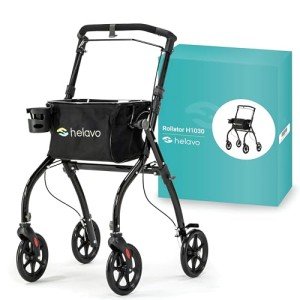The Most Important Reasons That People Succeed In The Durable Walker Industry
Choosing a Durable Walker: Your Guide to Enhanced Mobility and Independence
Navigating life's everyday obstacles can become significantly hard as we age or face health issues that restrict mobility. For lots of, a durable walker can be a game-changer— providing not just physical support however likewise increasing confidence. This article will check out the different types of durable walkers offered, their crucial features, upkeep suggestions, and how to select the right walker for your requirements.
What is a Durable Walker?
A durable walker is a mobility aid created to supply stability and support for individuals with limited movement capabilities. Unlike standard walkers, durable walkers are developed with robust products and engineering created for regular usage, making them ideal for users who require a reliable aid for daily activities.
Types of Durable Walkers
When picking a durable walker, it's necessary to comprehend the various types offered. Below is a table detailing typical types of durable walkers, their features, and perfect use cases.
Kind of Walker
Features
Perfect For
Standard Walker
Lightweight, non-wheeled design, adjustable height
People requiring standard support
Wheeled Walker
2 front wheels, braking system
Users needing additional mobility in the home
Heavy-Duty Walker
Strong frame for heavier weight capability
Overweight people or those with greater mobility needs
Rollator Walker
Four wheels, seat, hand brakes
Users looking for resting alternatives during walks
Folding Walker
Retractable design for easy transport
People who take a trip frequently or have limited storage
Knee Walker
Knee support for non-weight-bearing legs
People recuperating from foot or ankle injuries
Secret Features to Consider
When picking a durable walker, numerous features ought to be taken into consideration to ensure it satisfies your specific requirements. Below is a list of necessary features:
- Weight Capacity: Ensure the walker can support the user's weight safely.
- Height Adjustability: Look for walkers with adjustable heights to supply proper ergonomic support.
- Material: Aluminum walkers are lightweight and tough, while steel walkers offer included toughness.
- Wheels: Consider walkers with wheels for simpler maneuverability if the user is mobile enough.
- Grip Handles: Ergonomically designed grip manages enhance comfort and stability.
- Storage Options: Many walkers included attached seats or storage bags for benefit.
- Braking System: Essential for wheeled walkers to make sure stability throughout use.
Benefits of Using a Durable Walker
Buying a durable walker includes numerous benefits. Here are a few:
- Increased Stability: The main function of a walker is to provide support and stability.
- Boosted Confidence: Using a walker can assist users feel more secure in moving their environment.
- Boosted Mobility: Walkers can assist people keep mobility and self-reliance.
- Minimized Fatigue: A walker reduces tension on joints and muscles throughout movement.
- Enhanced Posture: They frequently promote better posture and positioning, which can decrease pain in the back.
How to Maintain Your Durable Walker
To make sure the longevity and safety of a durable walker, regular upkeep is crucial. Here are some ideas:
- Check for Damage: Inspect for any fractures or loose parts frequently.
- Clean Regularly: Wipe down deals with and frame with a mild cleaner to keep it hygienic.
- Oil Wheels: For wheeled walkers, use lubricant to avoid squeaking and ensure smooth motion.
- Height Adjustments: Periodically examine if the height is still ideal and change accordingly.
- Tighten Screws: Regularly inspect screws and bolts to ensure they are tight and secure.
Often Asked Questions (FAQs)
1. How do I understand which type of walker is best for me?
Choosing the ideal walker depends on your particular mobility needs, weight capability, and convenience choices. Consulting with a health care expert can offer tailored insights.
2. Can www.mymobilityscooters.uk utilize a walker on unequal surface areas?
While lots of resilience walkers are designed for different surfaces, it's a good idea to use them on flat surfaces when possible. Try to find walkers with larger wheels for better performance on irregular surfaces.
3. Exist walker's covered by insurance coverage?
In a lot of cases, Medicare and other insurance strategies cover durable walkers with a health care company's prescription. Contact your insurance provider for specific information.
4. Can walkers be used outdoors?
Many durable walkers are ideal for outdoor usage. However, selecting one with bigger wheels and good suspension will boost the experience on uneven terrains like yard or gravel.
5. Just how much weight can a heavy-duty walker support?
Heavy-duty walkers usually support between 300 to 600 pounds, depending upon the design. Always inspect the producer's requirements.
A durable walker can substantially boost the quality of life for individuals with mobility challenges. By understanding the different types, features, and upkeep standards, users can make an educated choice that best satisfies their requirements. With the right walker, individuals can regain mobility, self-reliance, and self-confidence in their lives. As constantly, seeking advice from with a health care expert for individualized suggestions is motivated to ensure the best fit for mobility needs.
